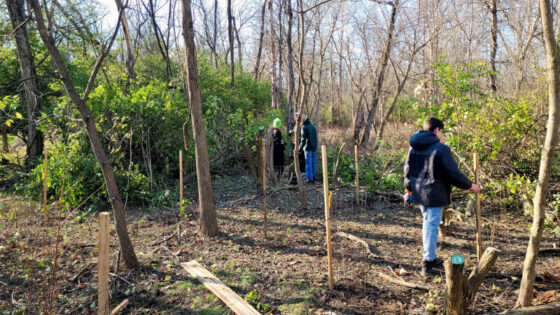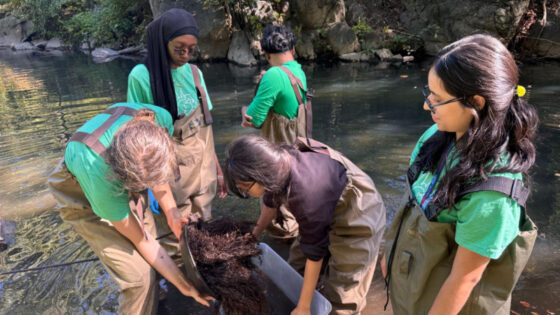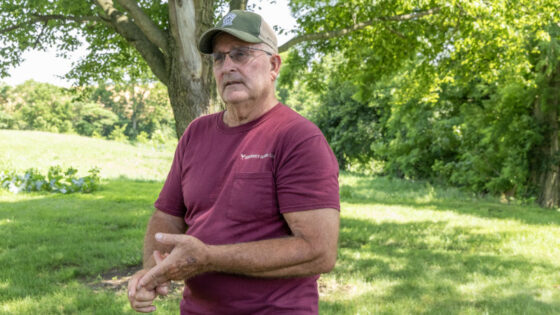How Philly Teachers Are Learning to Bring Meaningful STEM Experiences to City Students Through Environmental and Outdoor Clubs
By Kathryn Metzker and Diane Huskinson
Like the best teachers, Jennifer Pintimalli is a lifelong learner. After 25 years of teaching, she continues to seek new and improved ways to inspire her students.
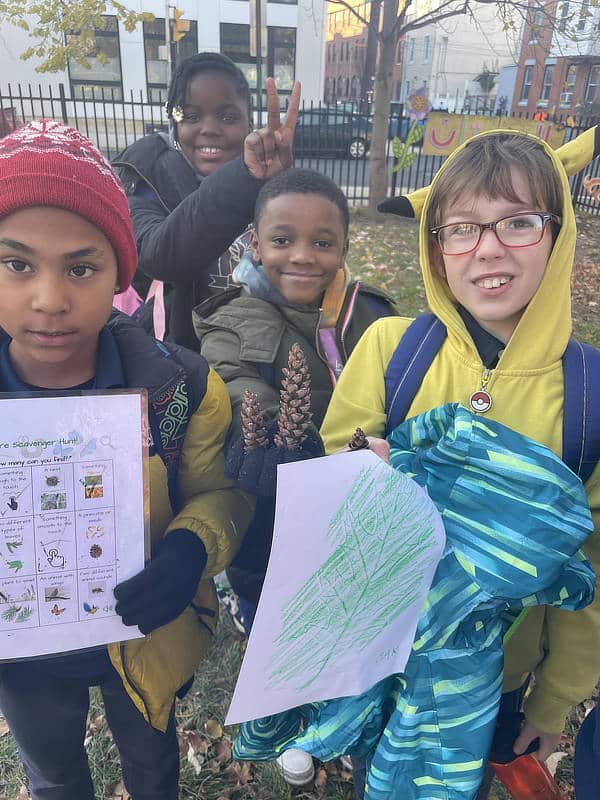
“I want my students to be lifelong learners. I want them to really love school and love science. My hope for them is that some of them will want to be in the science field,” says the fourth-grade teacher from William M. Meredith School in Philadelphia.
Pintimalli is committed to helping her students understand how their actions impact the world around them through environmental education. She’s not alone.
For the 2022–2023 academic year, Pintimalli and seven of her peers from the School District of Philadelphia have been eager participants in a new Stroud Water Research Center professional development program, discovering how to address environmental literacy and justice through the environmental clubs and outdoor programs that they lead.
New funding from the district has made it possible.
The Stroud Center is partnering with four local environmental and outdoor education providers to support this cohort of teachers: Let’s Go Outdoors, LandHealth Institute, Pennsylvania Sea Grant, and Riverbend Environmental Education Center.
In August, the teachers participated in a three-day professional development workshop, which included days hosted at the Stroud Center and John Heinz National Wildlife Refuge at Tinicum. They learned about example lessons and discussed how to lead outdoor clubs that better engage students in culturally responsive, interactive, and place-based environmental education.
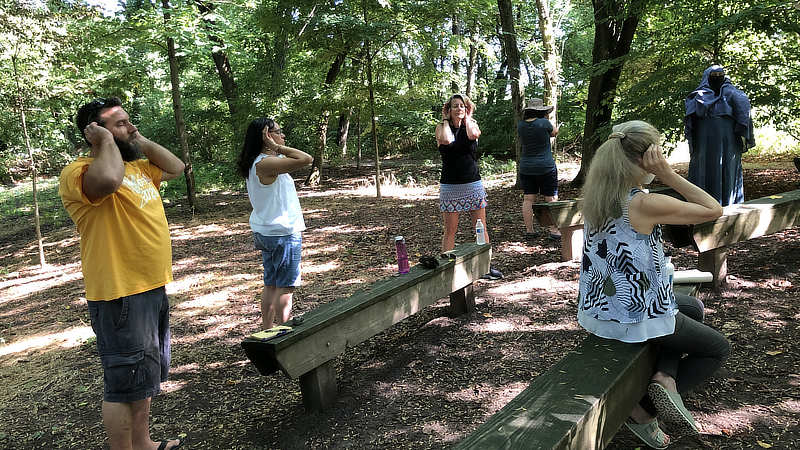
They are continuing to receive training and support throughout the school year with monthly meetings.
Environmental Educator Steve Mohapp, who co-leads the project, says the monthly sessions have been structured to give teachers time to talk, brainstorm, and ask questions. “We answer their questions and encourage teachers to help each other because they often face similar challenges,” he says.
Recruiting students to join the new environmental clubs was one of the common difficulties at the beginning of the year. Teachers rose to the challenge by creating fliers, going room to room to share their excitement for science and the program, and reaching out to parents. It worked. Participation is up, and some of the clubs have even doubled in size.
“We have tapped into a lot of girls,” says autism support teacher Hilary Henwood from John Moffet School. “Our science clubs are filled with girls, so we are breaking that stereotype where boys are good at science and math and the girls are good at reading and writing. I think we’re making a big breakthrough with that here.”
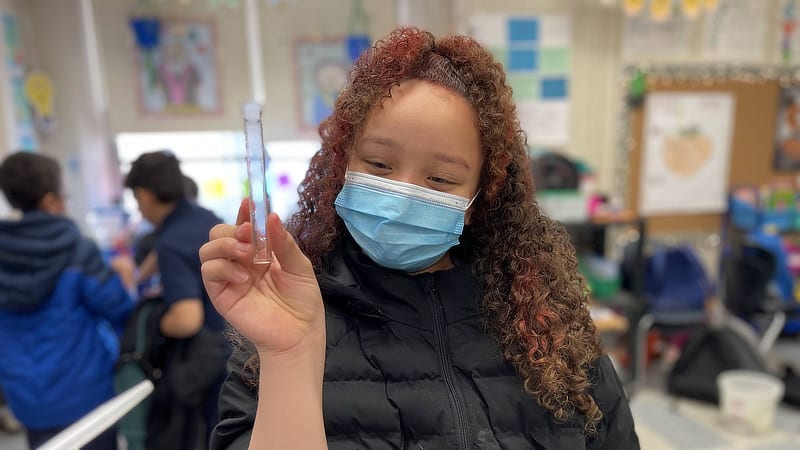
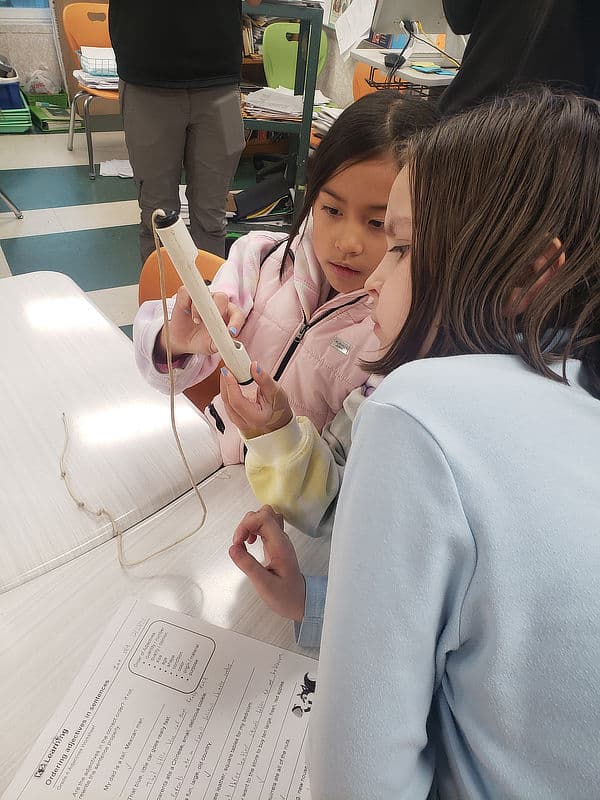
Pintimalli attributes her positive experience to the program’s format as well as its content: “I like how from the beginning, this professional development didn’t take the ‘Here’s what you need to do’ approach. It was inquiry-based. I’ve learned to incorporate some really fun and engaging games and outdoor activities to get the kids immersed in science and talk about it. I learned how to make activities like water sampling adhere to scientific standards, and then get the kids to think critically, discuss, and come to their own conclusions.”
Mohapp says, “To advance environmental literacy and justice, students need access to meaningful education that allows them to discover the natural world.”
In addition to water-related activities like stream sampling, the teachers have explored lessons on nature journaling, birding, and gardening.
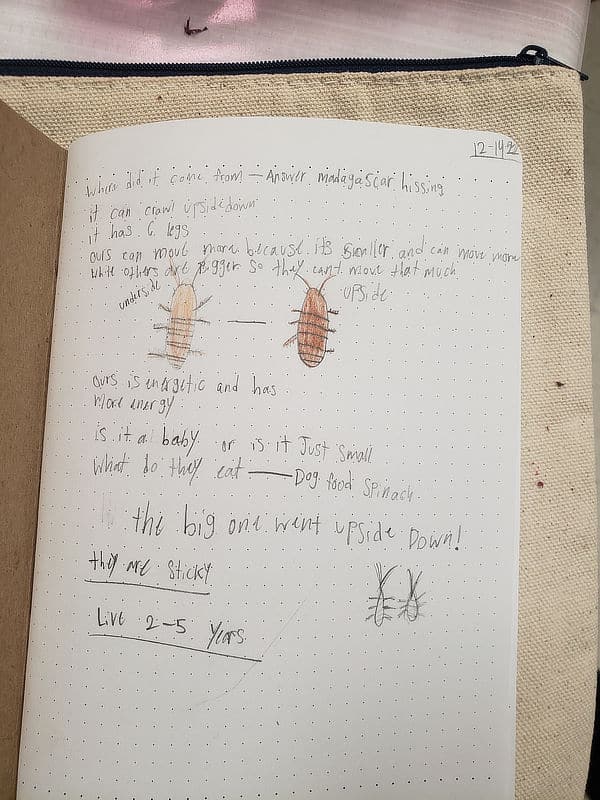
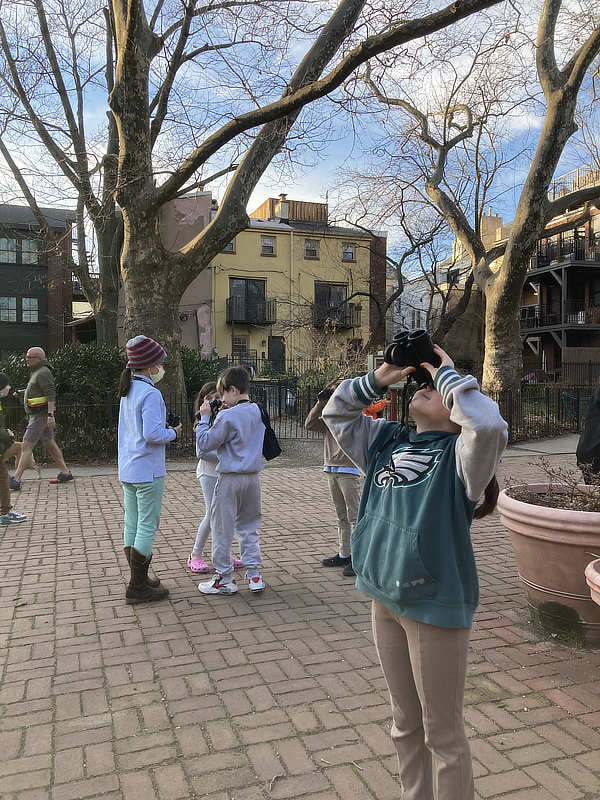
Atuwfa Muhammad, a special needs teacher at Blaine School of Philadelphia, says, “I want my students to learn things in other ways than through a book. When you’re talking about fish migrations or how plants grow, you don’t see that happening in a book. Those things are outside, so we’re trying to get more of our science instruction outside.”
At the end of the year, the teachers will participate in another three-day training when they will help plan and decide what they would like to learn next.
In addition to providing the workshops and monthly sessions, the Stroud Center and its partners are visiting the before- and after-school programs to lead hands-on environmental education activities with students both at their schools and during off-site field excursions. The visits serve to model engaging educational lessons and methods that teachers can implement in their clubs in the future.
“We are in an underfunded school,” says Michael DeMeno, a STEM teacher at John Moffet School, “so we see the opportunities students get in other schools and want to bring that into our school for our kiddos. What can we do so they get the same opportunities?”
DeMeno says that the professional development program has helped and stands out from others he’s participated in “because of all of the partnerships and all of the people that could come in and bring lessons.”
Henwood agrees: “It’s very easy to send a lesson or activity through an email like, ‘Hey, do this with your kids,’ but it’s definitely different to have people come in and explain and show how it’s done.”
Mohapp says, “In our second year of the award period, we will have an even larger cohort of schools; we hope to have 10 to 15 schools participating.”
Interested teachers from the first cohort will be invited to return as master teachers to speak at professional development meetings and share their tips and tricks for starting clubs, recruitment, activities with students, and more.
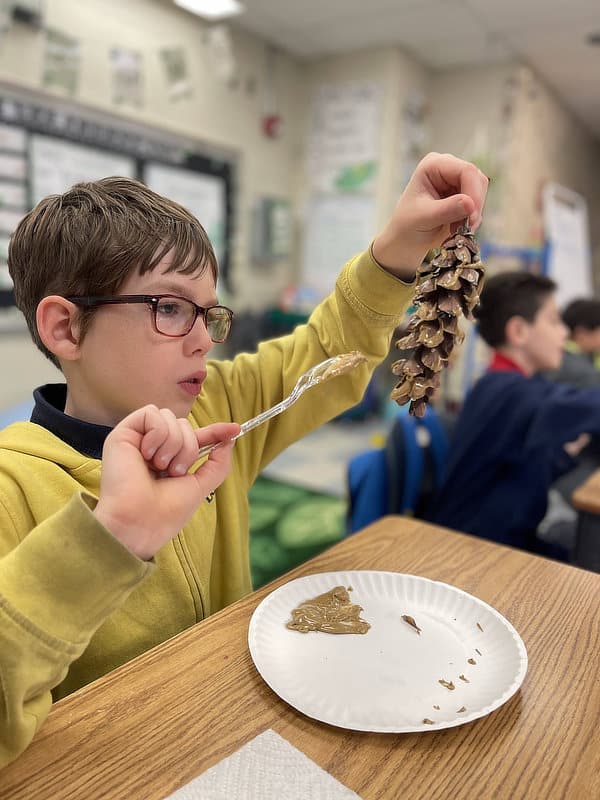
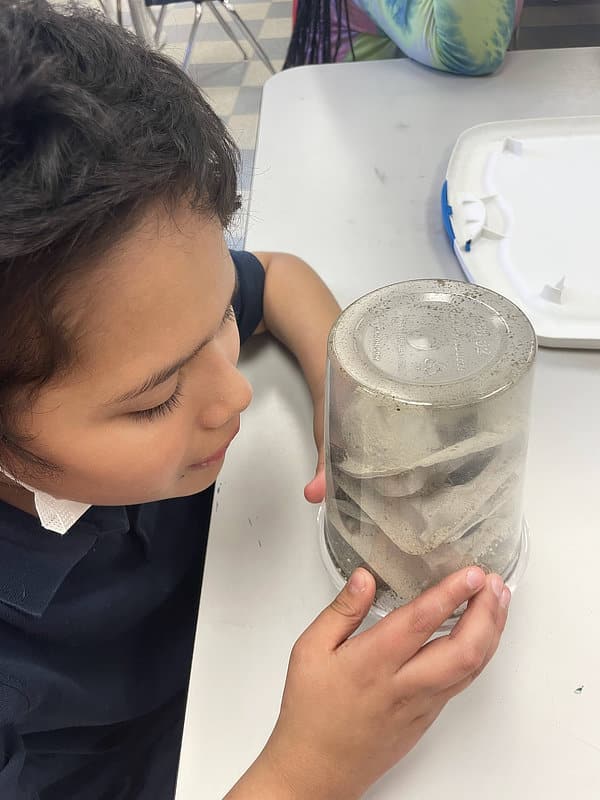
The Stroud Center invites teachers from the School District of Philadelphia who are leading or are interested in starting before- or after-school environmental clubs to join the 2023–2024 cohort in August. Please email Watershed Education Specialist Kathryn Metzker for more details.

